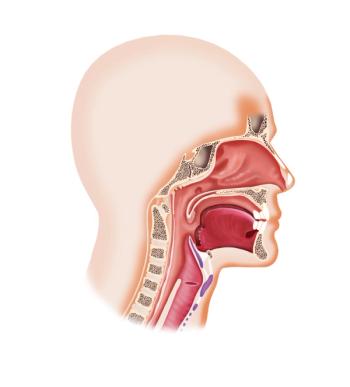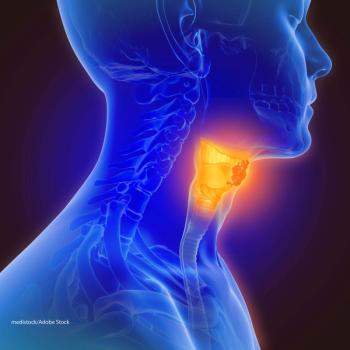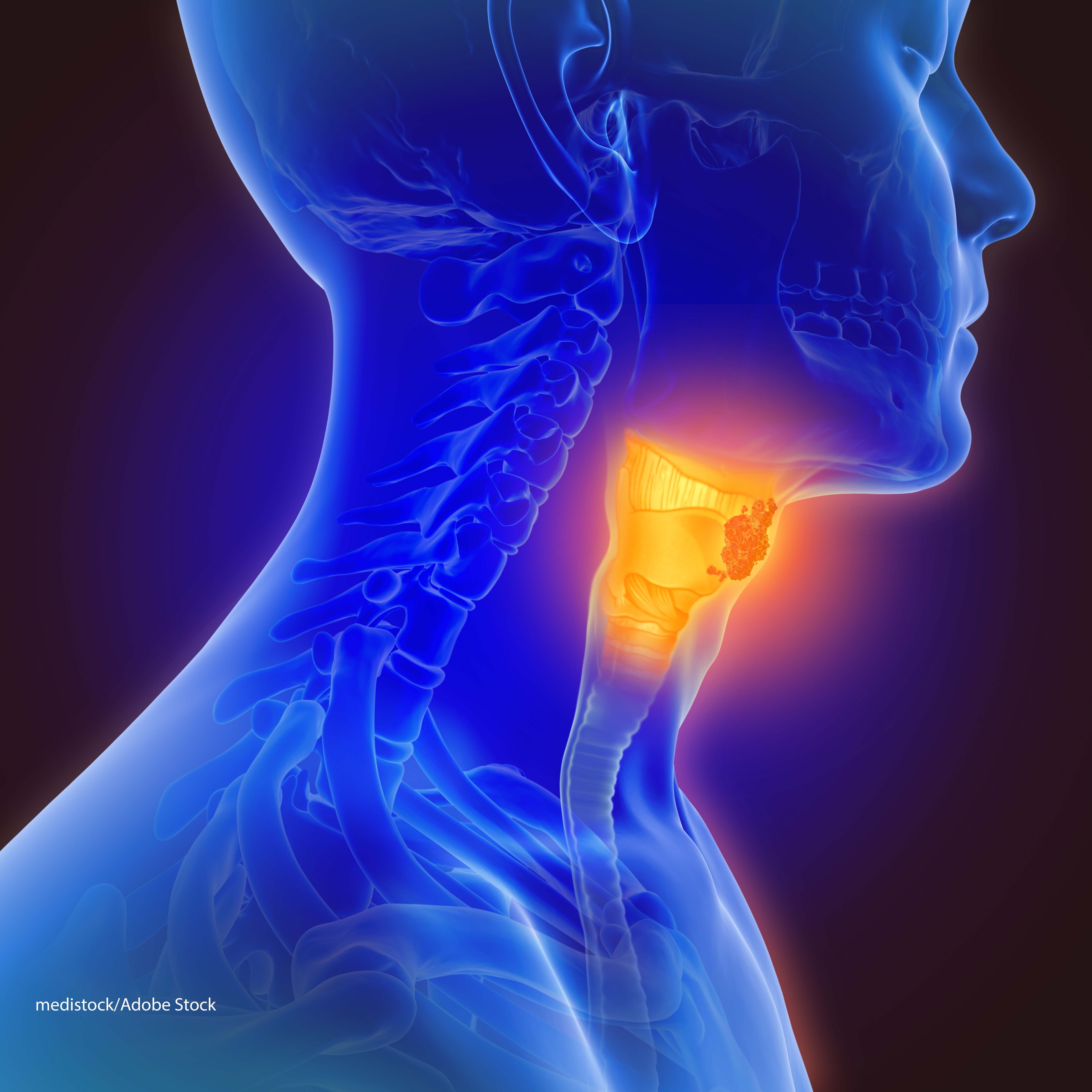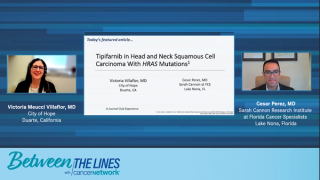
Head & Neck Cancer
Latest News
Latest Videos

Podcasts
CME Content
More News

The BURAN trial revealed no overall survival benefit for buparlisib and paclitaxel in recurrent head and neck cancer, despite some response rate improvements.

Data from the BL-B01D1-301 study support iza-bren as a potential standard of care for pretreated recurrent or metastatic nasopharyngeal carcinoma.

The investigator-evaluated ORR was 39.0% among those treated for recurrent/metastatic HNSCC, and the CR and PR rates were 9.8% and 29.3%, respectively.

A median OS of 21.3 months was found in the phase 1/1b trial evaluating ficerafusp alfa plus pembrolizumab in those with metastatic and recurrent HNSCC.

Regarding feeding tube use and weight loss, patients with oropharyngeal cancer treated with proton beam therapy or IMRT saw similar results.

The agency has recommended approval for subcutaneous pembrolizumab in all previous solid tumor indications, and for pembrolizumab in recurrent HNSCC.

Enhancing patient adherence to follow-up care for leukoplakia through habit cessation counseling and patient information leaflets may reduce oral cancer risks.

The next-generation ADC, CRB-701, demonstrated an emerging objective response rate of 57% in a subgroup of patients with HNSCC.

The cumulative chronic grade 3 or higher toxicity rate was 3% in patients treated with de-escalated adjuvant radiotherapy vs 11% with standard of care therapy.

The median overall survival was 39.3 months with PDS0101 plus pembrolizumab in those with frontline recurrent or metastatic head and neck squamous cell carcinoma.

Results from the phase 3 KEYNOTE-689 trial supported the agency’s approval of the pembrolizumab/surgery regimen in PD-L1–positive head and neck cancer.

This study explores the efficacy and safety of combining docetaxel and capecitabine for treating recurrent or metastatic head and neck cancer.

Data from the RATIONALE-309 trial support the European Commission’s approval of frontline tislelizumab plus chemotherapy in this patient population.
![No tracer-related adverse effects were observed in the study, with [18F]AIF-NOTA-PCP2 showing acceptable dosimetry in patients with head and neck cancers.](https://cdn.sanity.io/images/0vv8moc6/cancernetwork/566910aff802a39d5d1afef401d33f429392d845-1200x886.jpg?w=350&fit=crop&auto=format)
No tracer-related adverse effects were observed in the study, with [18F]AIF-NOTA-PCP2 showing acceptable dosimetry in patients with head and neck cancers.

Data from the phase 3 KEYNOTE-689 trial support the approval of the pembrolizumab-based regimen in this locally advanced HNSCC population.

Results from the NIVOPOSTOP trial found improved DFS with adjuvant nivolumab plus cisplatin and RT for patients with LA-SCCHN.

From breast cancer to head and neck tumors, the 2025 ASCO Annual Meeting may feature a wide range of practice-changing data across cancer care.

Survival data with eftilagimod alfa plus pembrolizumab compare favorably with historical results seen with standard-of-care therapies in this population.

Event-free survival events were observed in 37.5% of patients with resectable locally advanced HNSCC who took pembrolizumab vs 45.3% in those who did not.

Data from the phase 3 AK105-304 study support the approval of penpulimab in this nasopharyngeal carcinoma population.

Human saliva may hold antioxidants that are able to monitor the oral cavity's oxidative processes and offer guidance for the development of new drugs.

Christina Henson, MD, discusses recent phase 3 trial results comparing durvalumab to cetuximab in head and neck cancer, and why the trial was stopped early.

The trial was terminated early due to no statistical significance observed between durvalumab and cetuximab for patients with head and neck squamous cell carcinoma.

Pembrolizumab and bevacizumab yielded an ORR of 58.3% vs 12.5% with pembrolizumab monotherapy in patients with platinum-resistant nasopharyngeal carcinoma.

Support for the supplemental biologics license application is based on phase 3 KEYNOTE-689 trial data.












































